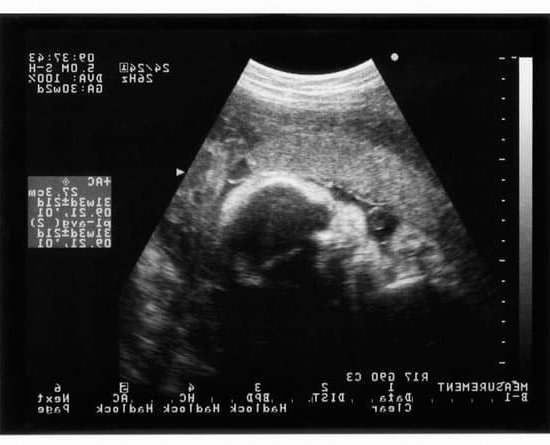Pregnancy is a unique and transformative journey for expectant mothers, filled with numerous physical and emotional changes. One of the most talked-about aspects of pregnancy is cravings – those sudden and intense desires for specific foods or combinations that can leave women puzzled or delighted. The question many women ask is, “When does the cravings start in pregnancy?” These cravings can begin early on and persist throughout the different stages of pregnancy, making them a fascinating subject to explore.
The science behind pregnancy cravings is complex and multifaceted. Hormonal changes, nutritional deficiencies, and even psychological factors can all play a role in why pregnant women experience these intense desires for certain foods. Understanding the underlying reasons behind these cravings can help women navigate this aspect of their pregnancy journey more effectively.
Throughout the various trimesters of pregnancy, different factors come into play that may influence the types of cravings experienced by expectant mothers. From typical cravings during the first trimester to increased cravings in the second trimester and even unusual cravings in the third trimester, each stage brings its own set of challenges and surprises when it comes to managing and interpreting these intense desires for particular foods.
The Science Behind Pregnancy Cravings
During pregnancy, cravings can vary greatly from woman to woman. The science behind pregnancy cravings is complex and multi-faceted. Hormonal changes play a significant role in triggering cravings. When does the cravings start in pregnancy precisely? Cravings can begin as early as the first trimester when hormonal shifts are at their peak. The surge in hormone levels, particularly estrogen and progesterone, can influence taste and smell preferences, leading to unusual desires for certain foods.
Biological Factors
Biologically, the body’s increased need for specific nutrients during pregnancy can also contribute to cravings. For example, a craving for red meat may indicate a need for more iron due to the increased blood volume supporting both the mother and fetus. Similarly, a desire for fruits high in vitamin C could be the body’s way of signaling a deficiency that needs to be addressed.
Emotional and Psychological Influences
In addition to biological factors, emotional and psychological influences can also impact cravings during pregnancy. Stress, anxiety, or even cultural factors may play a role in what pregnant women crave. Comfort foods or familiar dishes from childhood may bring a sense of nostalgia or security during this period of change and uncertainty. It’s essential to recognize that cravings are not solely driven by physical needs but can also be influenced by emotions and past experiences.
Factors That Influence Cravings in Pregnancy
Pregnancy cravings are a common and intriguing aspect of expecting a child. These cravings often vary from person to person, ranging from typical food items to more unusual combinations. Despite the uniqueness of each craving, there are several factors that can influence when these cravings start in pregnancy. One of the primary factors is hormonal changes. During pregnancy, hormonal shifts can affect taste and smell sensitivity, leading to specific food desires that may not have existed before.
Another factor that plays a role in initiating cravings during pregnancy is nutrient deficiencies. The body may signal certain cravings as a way to acquire essential nutrients needed for the development of the baby. For example, a craving for red meat could indicate a need for more iron, while a desire for dairy products may suggest a requirement for calcium. Understanding and addressing these nutrient deficiencies can help manage and satisfy cravings in a healthier manner.
Furthermore, emotional changes and stress levels can impact when pregnancy cravings begin. Feelings of anxiety or mood swings during pregnancy can trigger food cravings as a way to cope with emotional discomfort. Additionally, cultural influences and past eating habits can also contribute to the onset of cravings in pregnant individuals. It is crucial for expectant mothers to listen to their bodies, embrace their unique cravings, and make informed choices about nourishing themselves and their growing baby.
| Factors Influencing Pregnancy Cravings | Description |
|---|---|
| Hormonal Changes | Hormonal shifts affecting taste and smell sensitivity |
| Nutrient Deficiencies | Certain cravings indicating a need for essential nutrients |
| Emotional Changes | Impact of anxiety and stress on triggering food desires |
Typical Cravings During the First Trimester
During the first trimester of pregnancy, many women experience a range of cravings that can vary from person to person. The onset of these cravings can be influenced by hormonal changes and heightened sensitivity to certain smells and tastes. For some women, cravings may begin as early as the first few weeks of pregnancy, while others may not experience them until later on.
So, when does the cravings start in pregnancy? It’s important to note that each woman’s experience is unique, so there is no exact timeline for when cravings will start.
Cravings for Certain Foods
One common type of craving during the first trimester is a strong desire for specific foods that may not have been appealing before becoming pregnant. This could range from classic pickles and ice cream to more unusual combinations such as fruit with hot sauce. These cravings can be intense and may change frequently throughout the day. Some experts believe that these cravings could be the body’s way of signaling nutritional needs or imbalances during this crucial time.
Strategies for Managing Cravings
Managing cravings during the first trimester can be challenging, especially if you’re experiencing morning sickness or food aversions at the same time. One approach is to listen to your body and try to make healthier choices whenever possible. If you find yourself craving unhealthy foods, consider finding healthier alternatives that satisfy your craving without compromising your overall nutrition.
Additionally, staying hydrated and eating regular meals and snacks can help stabilize blood sugar levels and potentially reduce intense cravings. Remember, it’s okay to indulge in moderation but strive for balance to support both you and your baby’s health during this sensitive period of development.
Increased Cravings in the Second Trimester
During the second trimester of pregnancy, cravings tend to become more pronounced for many women. This period, typically spanning from weeks 13 to 27, is often referred to as the “honeymoon phase” of pregnancy due to various changes in the body.
One of the significant aspects that contribute to increased cravings during this time is the rapid development of the baby and changes in hormonal levels. The body’s need for additional nutrients and energy during this critical growth phase can manifest as intense food cravings.
Research suggests that during the second trimester, pregnant women may experience a surge in appetite and specific cravings for certain foods. This could be attributed to the body’s increased metabolic demands and adjusting nutritional needs for both the mother and the developing fetus. Cravings for particular flavors or textures might also indicate deficiencies or imbalances in essential nutrients like iron or calcium, prompting the body to seek out foods rich in these elements.
It is crucial for expectant mothers to pay attention to their cravings while ensuring a balanced diet that meets their nutritional requirements. Consulting with healthcare providers or nutritionists can help in navigating through these cravings effectively. Understanding why certain foods are craved during this stage can empower pregnant individuals to make informed choices that support their health and well-being throughout this exciting journey.
| Aspect | Description |
|---|---|
| Period of Intense Cravings | The second trimester (weeks 13-27) is characterized by increased hunger pangs and specific food desires. |
| Nutritional Needs | Rapid fetal development necessitates additional nutrients, which may drive heightened craving responses. |
| Consultation | Seeking advice from professionals can aid in managing cravings while meeting dietary requirements. |
Unusual Cravings in the Third Trimester
During the third trimester of pregnancy, some women may experience even more unique and unusual cravings compared to earlier stages. These cravings can range from sour to spicy, or even non-food items like ice or clay. It is essential for expectant mothers to understand that these cravings are a normal part of pregnancy and are usually harmless, as long as they are not harmful substances.
Here are some examples of unusual cravings that women may experience during the third trimester:
- Craving for Spicy Foods: Some women find themselves craving spicy foods like hot sauce, chili peppers, or curry dishes. This could be due to hormonal changes affecting taste buds.
- Craving for Ice: Known as Pica, some pregnant individuals develop a craving for ice cubes or crushed ice. This can sometimes indicate an iron deficiency and should be discussed with a healthcare provider.
- Craving for Non-Food Items: In rare cases, pregnant individuals may crave non-food items like dirt, chalk, or laundry starch. This condition known as Pica should be promptly addressed with medical professionals to avoid any potential health risks.
It’s important to remember that indulging in unusual cravings in moderation is usually safe during pregnancy. However, if there are concerns about the nature of the cravings or they involve substances that may be harmful, it is crucial to seek guidance from a healthcare provider.
Partners and support systems can play a significant role in helping pregnant individuals manage their cravings effectively and ensure a healthy pregnancy journey. Remember, every pregnancy is unique, so it’s essential to prioritize both physical and emotional well-being throughout this exciting time.
Coping Strategies for Managing Pregnancy Cravings
During pregnancy, it is common for women to experience cravings that can range from mild to intense. These cravings can be challenging to manage, but there are several coping strategies that can help expectant mothers navigate this aspect of pregnancy more smoothly. Below are some helpful ways to cope with and manage pregnancy cravings:
- Plan Balanced Meals: One way to combat intense cravings is to plan balanced meals and snacks throughout the day. By ensuring that your body is getting adequate nutrition, you may find that your cravings become more manageable.
- Stay Hydrated: Sometimes thirst can be mistaken for hunger, leading to increased cravings. Drinking plenty of water throughout the day can help keep cravings at bay and ensure proper hydration during pregnancy.
- Keep Healthy Snacks On Hand: Having healthy snacks readily available can help satisfy cravings in a way that still aligns with your nutritional needs. Opt for fruits, nuts, yogurt, or whole grain crackers as healthier alternatives to satisfy your craving.
It’s important to listen to your body during pregnancy and honor its needs while also being mindful of making healthy choices for you and your baby. By incorporating these coping strategies into your daily routine, you may find it easier to manage the ups and downs of pregnancy cravings.
Remember, it’s okay to indulge in occasional treats or give in to a craving now and then – balance is key. Seeking support from healthcare providers or a registered dietitian can also provide personalized guidance on managing pregnancy cravings effectively. Your journey through pregnancy cravings is unique, so finding what works best for you is essential in embracing this part of the amazing experience of growing new life within you.
How Partners and Support Systems Can Help
During pregnancy, cravings can vary in intensity and type, making it challenging for expectant mothers to navigate this aspect of their journey. While satisfying these cravings is important for overall well-being, partners and support systems play a crucial role in understanding and assisting pregnant individuals during this time.
Partners can offer support by actively engaging with the expectant mother to determine her specific cravings and preferences. By participating in grocery shopping or meal preparation, partners can ensure that the necessary foods are readily available to satisfy cravings promptly. Additionally, partners can show empathy and patience towards any unusual or intense cravings that may arise, creating a supportive environment for the pregnant individual.
Support systems beyond partners, such as family members or friends, can also provide valuable assistance during pregnancy. Simply offering to accompany the expectant mother on food runs or providing recommendations for satisfying yet nutritious alternatives can make a significant difference. Understanding that cravings are a normal part of pregnancy can help support systems approach the situation with compassion and understanding, fostering a more positive experience for everyone involved.
Ultimately, partners and support systems have an essential role in helping manage pregnancy cravings by being present, attentive, and accommodating. By recognizing the significance of these cravings in fulfilling nutritional needs and emotional well-being during pregnancy, loved ones can contribute to a healthier and more enjoyable journey for the expectant mother.
Myth-Busting
During pregnancy, many women experience cravings for specific foods that may not have interested them before. These cravings can vary in intensity and type, leading to questions around when does the cravings start in pregnancy. Contrary to popular belief, cravings can actually start as early as the first trimester. Some women report craving sour or salty foods during this time, while others may find themselves reaching for sweets more often.
One common misconception about pregnancy cravings is that they are solely driven by nutritional deficiencies. While it is true that some cravings may indicate a need for certain nutrients, such as iron or protein, they are primarily influenced by hormonal changes in the body. The surge in hormones like estrogen and progesterone can affect taste perception and appetite, leading to unusual or intense cravings.
Another myth surrounding pregnancy cravings is that giving in to them excessively can harm the baby or lead to complications. In reality, indulging in cravings in moderation is generally safe and can help satisfy the increased appetite many pregnant women experience. It is important to listen to your body’s signals and practice balance rather than strict restriction when it comes to managing cravings during pregnancy.
Conclusion
As expectant mothers navigate the exciting and sometimes challenging journey of pregnancy cravings, they find themselves in a unique position to explore their preferences and nutritional needs. While the exact moment when cravings start in pregnancy may vary from person to person, it is generally believed that they can begin as early as the first trimester. It is important for pregnant individuals to tune into their bodies and understand the signals they are receiving in terms of food cravings.
The science behind pregnancy cravings sheds light on the complex interplay of hormones, nutrient deficiencies, and psychological factors that contribute to these desires. Factors such as cultural influences, past eating habits, and individual taste preferences also play a role in shaping the types of foods pregnant women crave. By recognizing these influences, expectant mothers can make informed choices about their diet during this crucial time.
To cope with pregnancy cravings effectively, it is essential for mothers-to-be to maintain a balanced and nutritious diet while also indulging in occasional treats. Seeking support from partners, family members, and healthcare providers can help alleviate any stress or guilt associated with food cravings.
By staying informed about healthy eating practices and debunking common misconceptions surrounding pregnancy cravings, women can embrace this journey with confidence and joy. Ultimately, understanding and managing pregnancy cravings is an integral part of the overall experience of expecting a child.
Frequently Asked Questions
What Does a Pregnancy Craving Feel Like?
Pregnancy cravings can feel like intense urges or desires for specific foods that may not typically be part of your regular diet. It’s often described as a strong need to eat a particular taste, texture, or combination of flavors.
Some women may experience cravings as a way to satisfy nutrient deficiencies, while others may just be drawn to certain foods due to hormonal changes.
What Happens if You Ignore Pregnancy Cravings?
Ignoring pregnancy cravings may not necessarily cause harm to the baby or mother in most cases. However, it is important to listen to your body during pregnancy and try to fulfill your cravings in moderation.
Sometimes, ignoring cravings can lead to feelings of deprivation which could impact mood and overall well-being. It’s essential to maintain a balanced and healthy diet throughout pregnancy, so finding healthier alternatives to satisfy those cravings is key.
Are Pregnancy Cravings What the Baby Is Craving?
Pregnancy cravings are not necessarily what the baby is craving. While some believe that cravings signal what the body needs or what the baby wants, there isn’t enough scientific evidence to support this idea conclusively.
Cravings during pregnancy are thought to be influenced by a variety of factors including hormonal changes, nutrient deficiencies, cultural influences, and emotional needs. It’s more likely that these cravings reflect the mother’s body seeking specific nutrients or responding to changes in taste preferences rather than the baby communicating their desires.

Welcome to my fertility blog. This is a space where I will be sharing my experiences as I navigate through the world of fertility treatments, as well as provide information and resources about fertility and pregnancy.





